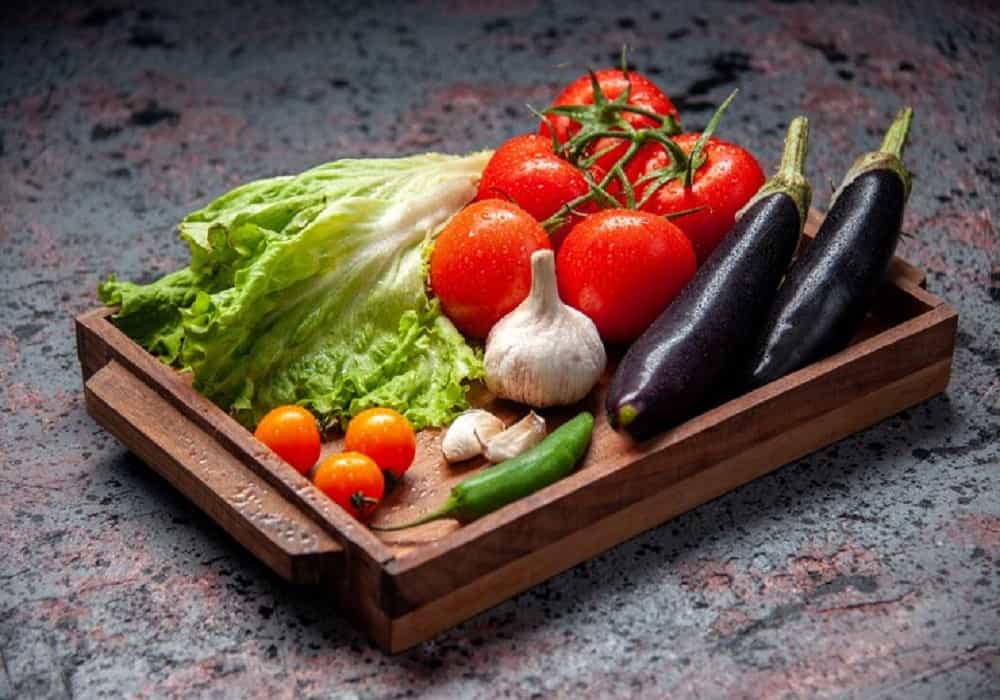10 Easy-to-Grow Kitchen Garden Vegetables in India for Fresh, Home-Cooked Meals
Creating a kitchen garden can be a rewarding experience, especially in India, where the climate and soil conditions are well-suited for a variety of vegetables. Growing your own vegetables not only ensures fresh, home-cooked meals but also contributes to a sustainable lifestyle. If you’re new to gardening or looking to expand your garden, here are ten easy-to-grow kitchen garden vegetables in India that can enhance your culinary experience.
1. Tomatoes
Tomatoes are a staple in Indian kitchens, making them a must-have in any kitchen garden. They need lots of sunlight and do best in warm temperatures. Start with seedlings or young plants and ensure they get at least 6-8 hours of sunlight daily. Tomatoes need well-drained soil rich in organic matter. Regular watering and staking for support can help them grow robustly and yield abundant fruit.
2. Spinach
Spinach is a nutritious leafy green that grows well in cooler seasons. It’s perfect for the winter months in India. Spinach prefers slightly acidic to neutral soil and can tolerate partial shade. Plant seeds directly in the ground or begin with seedlings. Keep the soil consistently moist, and you’ll have a steady supply of fresh spinach for your dishes.
3. Carrots
Carrots are another versatile kitchen garden vegetable that’s easy to grow. They require loose, well-drained soil to develop properly. Carrots can be sown directly into the soil, but ensure the soil is free from large clumps and rocks. Carrots prefer cooler temperatures, so they grow best during the winter months in India. Regular watering and thinning of seedlings will help you achieve long, straight carrots.
4. Green Beans
Green beans are prolific producers and adapt well to a variety of soil conditions. They grow quickly and require minimal maintenance. Plant them in a sunny location, and for climbing species, give them support. Green beans are also great for vertical gardening, making them suitable for small spaces. Harvest them regularly to encourage more production.
5. Lettuce
Lettuce is a versatile leafy vegetable that thrives in cooler weather. It can be planted in garden beds or containers. Lettuce prefers well-drained, fertile soil and a spot with partial shade. Sow seeds directly or start with seedlings. Regular watering and proper spacing are crucial to prevent bolting (premature flowering) and to ensure a steady supply of fresh leaves.
6. Radishes
Radishes are one of the fastest-growing kitchen garden vegetables and are perfect for beginner gardeners. They mature in about 4-6 weeks and grow well in cool weather. Radishes can be directly sown into the soil, and they thrive in loose, well-drained soil. They are also great for interplanting with slower-growing vegetables, making efficient use of garden space.
7. Coriander (Cilantro)
Coriander, known as cilantro in other regions, is a popular herb used in Indian cuisine. It thrives in containers as well as garden beds.
Coriander prefers well-drained soil and a sunny to partially shaded spot. You may start this herb from seeds, and it grows quickly. Regular harvesting of the leaves will encourage continued growth.
8. Chilies
Chilies are an essential ingredient in many Indian dishes, and they grow well in Indian climates. They need a sunny location and well-drained soil. Start with seedlings or young plants, and provide support if needed. Regular watering and occasional feeding with a balanced fertilizer will help produce spicy, flavorful chilies throughout the growing season.
9. Beetroot
Beetroot is a root vegetable that’s easy to grow and adds a vibrant color to your garden. It prefers well-drained, loamy soil and a sunny location. Beetroots can be directly sown into the soil, and they grow well in cooler weather. Regular watering and proper spacing are key to ensuring healthy, round beetroots.
10. Pumpkins
Pumpkins are a fun and productive addition to any kitchen garden. They require ample space to spread out and grow. Pumpkins require full sun and organic matter-rich, well-drained soil. Directly sown seeds in the ground are the finest way to begin them. Regular watering and providing space for the vines to spread will help you grow large, healthy pumpkins.
Tips for Success in Growing Kitchen Garden Vegetables in India
- Soil Preparation: Ensure your garden soil is well-drained and rich in organic matter. Adding compost can improve soil fertility and structure.
- Watering: Regular and consistent watering is crucial for vegetable growth. Avoid waterlogging by ensuring good drainage.
- Sunlight: The majority of kitchen garden vegetables need full sun, or at least 6 to 8 hours a day in direct sunshine. Choose your planting location accordingly.
- Pest Control: Monitor your garden for pests and diseases. Use organic methods like neem oil or insecticidal soap to manage common issues.
- Harvesting: Regular harvesting encourages plants to produce more. Pick vegetables at their peak to ensure the best flavor and quality.
By incorporating these easy-to-grow kitchen garden vegetables into your garden, you’ll not only enjoy fresh and nutritious home-cooked meals but also experience the satisfaction of growing your own food. Whether you have a spacious garden or a small balcony, these vegetables are adaptable and can fit into various gardening setups, making them perfect for Indian gardeners of all levels.






